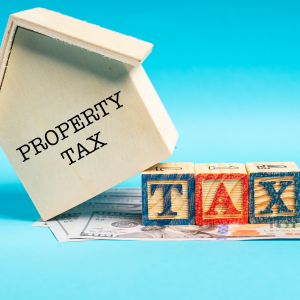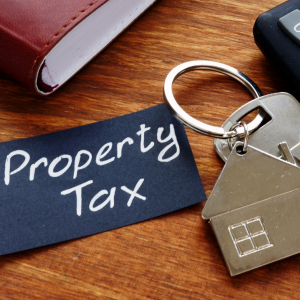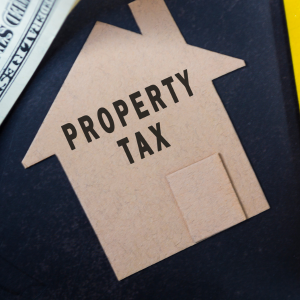
Understanding Property Tax Rates in Arlington, TX

Homebuyers and real estate investors must understand the property tax rates in Arlington, TX, to make informed decisions. In Arlington, property taxes are calculated using a property’s assessed value, which the Tarrant County Appraisal District determines.
The total tax rate is the sum of several components, such as city taxes, school district taxes, and county taxes. Each entity sets its own annual rate, which adds to the total amount property owners must pay.
Understanding these components is critical because they have a direct impact on Arlington properties’ affordability and potential return on investment. Texas does not have a state income tax, making property tax rates a crucial factor for budget-conscious buyers and investors.
Homestead and senior citizen exemptions can help lower taxable value, making it worthwhile for potential homeowners to take full advantage of these opportunities. Gaining a clear understanding of how property values are appraised and tax rates are determined provides a strategic edge in controlling expenses in today’s shifting real estate market. For those planning to sell, working with cash home buyers in Arlington and surrounding Texas cities can offer a straightforward and efficient option.
Key Factors Influencing Arlington Property Taxes
Understanding the factors affecting property taxes in Arlington, TX, is important for both homebuyers and real estate investors. One of the most important factors influencing property tax rates is the assessed value of a property, which is determined by the Tarrant County Appraisal District.
The district evaluates properties annually to determine their market value, and these assessments have a direct impact on the amount of tax owed. Local government budgets also have a significant impact on tax rates because they determine the funding requirements for essential services like schools, infrastructure, and public safety.
Furthermore, exemptions can impact individual property tax liabilities; for example, homestead exemptions can reduce the taxable value of primary residences. Economic factors, including local real estate market conditions and broader trends, can impact property values and tax policies over time.
Understanding these dynamics can help buyers and investors anticipate financial changes when purchasing or managing properties in Arlington.
How to Calculate Your Property Tax in Arlington, Texas
To calculate property taxes in Arlington, Texas, you must first understand the local appraisal process and applicable tax rates. First, the Tarrant Appraisal District evaluates your property’s market value on an annual basis, taking into account factors such as location, size, and improvements.
To calculate your tax obligation, apply the appropriate tax rates to your property’s assessed value. These include Arlington city taxes, Tarrant County county taxes, and possibly other district taxes such as school or utility service fees.
Each taxing entity determines its rate per $100 of assessed value. To accurately calculate your total property tax bill, add all of these individual rates and apply them to your property’s assessed value.
Stay up to date on changes in tax rates and exemptions that may impact your final bill. Engaging with a local real estate professional or consulting official resources can help homebuyers and investors understand Arlington’s specific property tax calculations.
Comparing Arlington’s Property Tax Rate with Other Texas Cities
Homebuyers and investors in Arlington would do well to familiarize themselves with the property tax rates of other Texas cities before deciding to purchase a home there. When compared to neighboring cities like Dallas or Fort Worth, Arlington, which is in Tarrant County, typically offers a more favorable tax climate.
While Arlington’s property tax rate is sometimes slightly higher than that of smaller cities like Plano or Frisco, it generally follows the average rate seen across larger Texas metropolitan regions. Variations in local government services, school district financing needs, and municipal budgets all play a role in these discrepancies.
For example, compared to Austin, whose rates can fluctuate due to infrastructure demands, Houston’s rates tend to be more stable because of its diverse revenue sources and larger industrial base, which means that property taxes in Houston tend to be lower. Arlington is a city that successfully mixes residential and commercial development, making it an attractive option for homeowners looking for stable communities and investors looking for lucrative opportunities in Texas’s diverse tax landscape.
Strategies for Lowering Your Property Tax Bill in Arlington, TX
Navigating property tax rates in Arlington, TX, can be difficult for homebuyers and real estate investors, but there are several strategies that can help you lower your property tax bill. First, review the appraisal report provided by the Tarrant Appraisal District to ensure that your property’s assessed value is correct; any discrepancies should be formally contested.
Homeowners may qualify for exemptions, such as the homestead exemption, which can significantly reduce taxable value. Seniors, veterans, and people with disabilities may qualify for additional exemptions that reduce their tax liability.
It is best to stay informed about local tax rate changes by attending Arlington City Council public meetings or visiting the Tarrant County Tax Assessor-Collector’s office website. Consider making energy-efficient improvements to your home, as these may qualify you for state or federal incentives that have an indirect impact on your property taxes.
A professional tax consultant who is familiar with Arlington’s property tax landscape can offer personalized advice and identify missed savings opportunities.
The Role of Appraisals in Determining Property Taxes in Arlington
Arlington, TX, homeowners and real estate investors rely heavily on appraisals to determine property tax rates. The appraisal process determines the market value of a property, which impacts the amount owed in property taxes.
The Tarrant Appraisal District conducts this assessment in Arlington, evaluating factors such as location, size, and condition to determine the property’s appraised value. This appraised value is then multiplied by the local tax rate to determine the annual property tax liability.
Homebuyers and real estate investors must be aware that any changes to an appraisal can have a significant impact on their financial responsibilities. As a result, staying informed about how properties are appraised and keeping track of any updates or appeals is critical for effective property tax management in Arlington.
Regularly reviewing appraisal notices and understanding market fluctuations can help homeowners plan for tax changes.
How New Legislation Affects Property Taxes in Arlington, Texas
Recent legislative changes have had a significant impact on property tax rates in Arlington, Texas, creating both opportunities and challenges for homebuyers and real estate investors. The state’s new laws aim to provide relief by capping the annual increase in property tax revenue that local governments can collect. This directly affects Arlington’s property tax landscape.
These legislative measures are intended to reduce rapidly rising taxes and provide greater predictability for homeowners and investors alike. Understanding the nuances of these laws is critical for those looking to buy real estate in Arlington, as they affect financial planning and investment strategies.
Furthermore, the legislation requires greater transparency in how tax rates are determined and voter approval for significant increases in local government spending funded by property taxes. Prospective buyers and investors should understand how changes in the real estate market may impact their expenses and returns.
Common Exemptions and Deductions for Arlington Homeowners

Homeowners in Arlington, Texas, need to know about property tax exemptions and deductions if they want to pay less in taxes. The homestead exemption is one of the most important exemptions because it lowers the assessed value of a primary residence, which lowers the overall property taxes.
People who own homes and qualify for this exemption can save a lot of money each year. Also, people who are 65 or older or have a disability may be able to get even more discounts through certain senior citizen or disabled person exemptions.
These specific exemptions can help even more by lowering the taxable value even more. Veterans who live in Arlington may be able to get more tax breaks based on their disability ratings or military service history. This would give them much-needed financial help.
By understanding the various exemptions and how they apply to your situation, you can significantly reduce your annual property tax bill. Whether you’re a first-time homebuyer or a seasoned real estate investor in Arlington, being aware of these deductions can greatly influence your budgeting and investment strategy. For those looking to sell, Ready House Buyer can help simplify the process and provide reliable solutions.
Navigating the Appeals Process for High Property Taxes in Arlington
For homeowners and real estate investors in Arlington, TX, who want to keep their finances in order, going through the appeals process for high property taxes can be very important. The first step is to carefully read the property tax assessment notice you got from the Tarrant Appraisal District to make sure all the information is correct.
You have the right to file a formal protest with the Arlington Appraisal Review Board if you find any mistakes or overvaluations. To make your case stronger, you need to get proof, like recent home sales data or independent appraisals, that show the real market value of your property.
It’s important to know the deadlines. You have until May 15th or 30 days after you get your appraisal notice to file a protest. Sometimes, an informal meeting with the district’s appraiser can help you come to an agreement before a formal hearing is needed.
If you can’t work things out informally, you’ll have to go to a formal hearing and make your case for why your property taxes should be lower because the assessments were wrong or because they were unfairly compared to similar properties. Getting help from a local real estate lawyer or tax consultant who knows Arlington’s property tax laws can also help you win your appeal against high taxes.
Which County in Texas Has the Highest Property Tax Rates?
When comparing property tax rates in Texas, especially for homebuyers and real estate investors considering Arlington, TX, it is critical to understand the state’s overall landscape. In Texas, property tax rates can vary greatly from county to county.
Notably, Collin County frequently ranks among Texas’s highest property tax rates. This is largely due to its rapidly expanding population and the resulting demand for infrastructure and public services.
Homebuyers and real estate investors considering Arlington should compare these rates to those in Collin County to better understand their potential financial obligations. Individuals can make more informed decisions about purchasing real estate in Arlington or other parts of Texas if they understand how these various tax rates affect overall costs.
High property taxes can impact both immediate affordability and long-term investment returns, so understanding regional differences is critical for anyone entering the real estate market in this diverse state.
How Do I Find Out My Property Tax Rate in Texas?
To calculate your property tax rate in Arlington, TX or anywhere in Texas, there are several resources and steps to follow for accurate results. First, go to the official website of the local appraisal district.
For Arlington, this is typically the Tarrant Appraisal District website, where you can look up specific details about your property by entering its address or parcel number. The website provides comprehensive information on assessed values and tax rates used by various taxing authorities.
You can also contact the local county tax assessor-collector’s office for personalized help and clarification on how property taxes are calculated in your area. It’s important to understand that Texas property tax rates are set by a variety of entities, including school districts, city councils, and special districts; each sets its own rate, which adds up to your total property tax bill.
Homebuyers and real estate investors should keep in mind that property tax rates can change annually depending on budget requirements and voter approval. Staying updated through official channels helps ensure you fully understand the financial responsibilities of owning property in Arlington, Texas. If you’re considering selling, learning how Ready House Buyer works can give you a clear picture of the process.
At What Age Do Seniors Stop Paying Property Taxes in Texas?

Some seniors in Texas may be able to get out of paying property taxes, but they don’t stop paying them just because they are older. People aged 65 and older can get the Over-65 Homestead Exemption, which can lower their property taxes. This is important for homebuyers and real estate investors who are interested in Arlington, TX.
This exemption lowers the assessed value by a large amount, which lowers the total amount of property taxes owed. Also, once a senior qualifies for this exemption, the school district part of their property tax bill stays the same as the amount they paid the first year they qualified, even if property values or tax rates go up in the future.
It’s important for both potential homebuyers and real estate investors who want to buy property in Arlington to understand these small differences. To get lower taxes and possibly save money on long-term investments, seniors must apply for this exemption.
What’s the Property Tax Rate in Fort Worth, Texas?
When analyzing property tax rates in Fort Worth, Texas, it’s wise for homebuyers and real estate investors to compare them with those in Arlington. Situated in Tarrant County, Fort Worth’s property tax rate is determined by several entities, including the city government, school districts, and special districts. According to the most recent assessment, the rate is approximately set, and for homeowners exploring selling options, partnering with a company that buys homes in Dallas and other cities in Texas can provide a fast and convenient solution.
3% of the home’s assessed value. The rate varies by location within the city due to school district levies and municipal services. Understanding the complexities of Fort Worth’s property tax structure is critical for prospective homeowners and real estate investors seeking to make sound investment decisions. By comparing these rates to those in Arlington and other nearby cities, buyers can better assess their potential financial commitments and investment returns. Additionally, exemptions such as homestead or senior citizen discounts can have a significant impact on the effective property tax rate in Fort Worth. As a result, anyone looking to buy real estate in this vibrant Texas city should conduct extensive research on local regulations and potential exemptions.
Helpful Arlington Blog Articles

| TAX BASED | TAXATION | TAX PAYMENT | REAL ESTATE TAX | EFFECTIVE TAX RATE | TAX RATE |
| TARRANT COUNTY, TX | TARRANT COUNTY, TEXAS | MARKET VALUES | PAYMENT | FEE | MEDIAN HOME PRICE |
| MORTGAGE | U.S. | SMARTASSET | MEDIAN | FINANCIAL ADVISOR | PRICE |
| PERCENTAGE | MONEY | CITIES OF FORT WORTH | FISCAL YEAR | FEEDBACK | EXPENDITURES |
| CASH | CALCULATOR |
